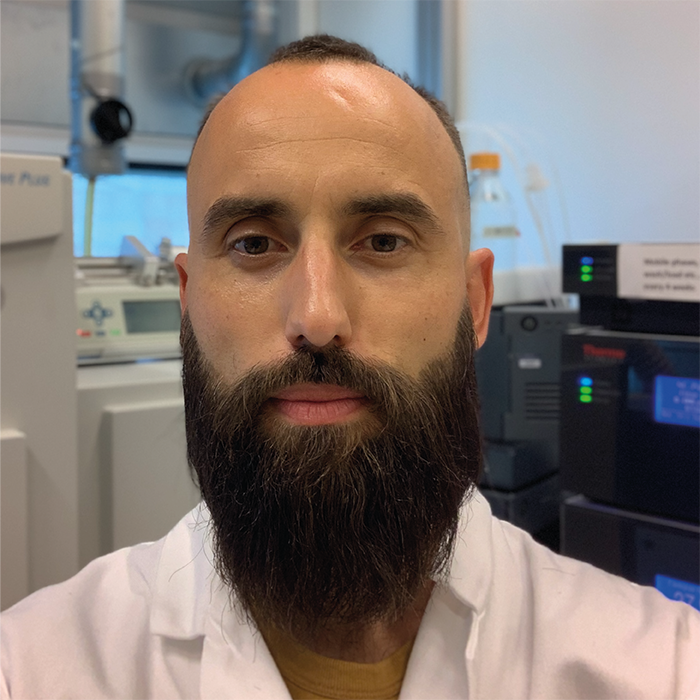Recycling with SFC. Kevin Schug and colleagues have developed a new supercritical fluid chromatography method that can separate pyrolysis oils produced from different waste plastics and mixtures. The researchers found that a general method using ethanol as a modifier and two 2-ethyl pyridine columns could effectively resolve plastic waste pyrolysis oils. “This SFC-UV method could be used to create a database of oils from well-characterized samples, which could then be used for training more sophisticated models, using for example machine learning,” concluded the authors. “This approach could then help identify the plastic waste feedstock, and simplify the steps needed to understand the composition of the oil before further refinement.”

Andrea Gargano
Nanoflow in the clinic? Peter Schoenmakers, Andrea Gargano, and colleagues have characterized complex proteoform mixtures using online nanoflow ion-exchange chromatography directly coupled with native MS. According to the authors, the method was rapid, accurate, and repeatable. “The high sensitivity of the method, resulting from the high desolvation efficiency in nESI and the trap-and-elute preconcentration setup, suggests a great potential for the characterization of low-abundant species [...] opening unprecedented opportunities for clinical studies and other sample-limited applications.” the authors concluded.

Peter Schoenmakers
Why we love LC. Researchers from the Oregon National Primate Research Center have developed a new LC-MS/MS method that can accurately measure oxytocin – the “love hormone” – in non-human primates. Putting the new method into practice, they found a positive correlation between pituitary and cerebrospinal fluid levels of oxycontin in macaques. “These preliminary results allow for future analyses to determine whether LC-MS/MS measures of peripheral oxycontin can be used as markers of oxycontin levels in the brain of nonhuman primates that serve as valuable models for many human neuropsychiatric disorders,” conclude the authors.
Understanding VX. Little is known about the reaction and degradation products associated with the deadly VX-type nerve agents – despite their importance as potential indicators of chemical warfare agent use. That’s why researchers from India and the Netherlands synthesized the reaction products of 2-(N,N-dialkylamino)ethylchlorides and 2-(N,N-dialkylamino)ethanols, two known precursors and degradation productions of VX, and characterized them using GC-MS. Their spiking experiments in soil and water samples revealed that the target analytes were stable, easily extractable, and detectable using GC-MS.

Kevin Schug
Also in the news...
“Biodegradable” teabags don't readily deteriorate in the environment and can adversely affect terrestrial species, according to size exclusion chromatography, nuclear magnetic resonance, and scanning electron microscopy analysis. Link
Caffeine blood concentrations greater than 100 µg/mL could contribute to fatal health outcomes, according to analysis of postmortem samples with LC-MS/MS. Link
Melanie Bailey and colleagues demonstrate that LC-MS analysis of finger sweat can be used to conveniently and non-invasively monitor drug administration. Link
Scientists develop an LC-MS/MS method, with a polymer-based size-exclusion column to monitor triethanolamine (a fabric softener ingredient) contamination in water. Link
Image Credit: Shutterstock (edited)




